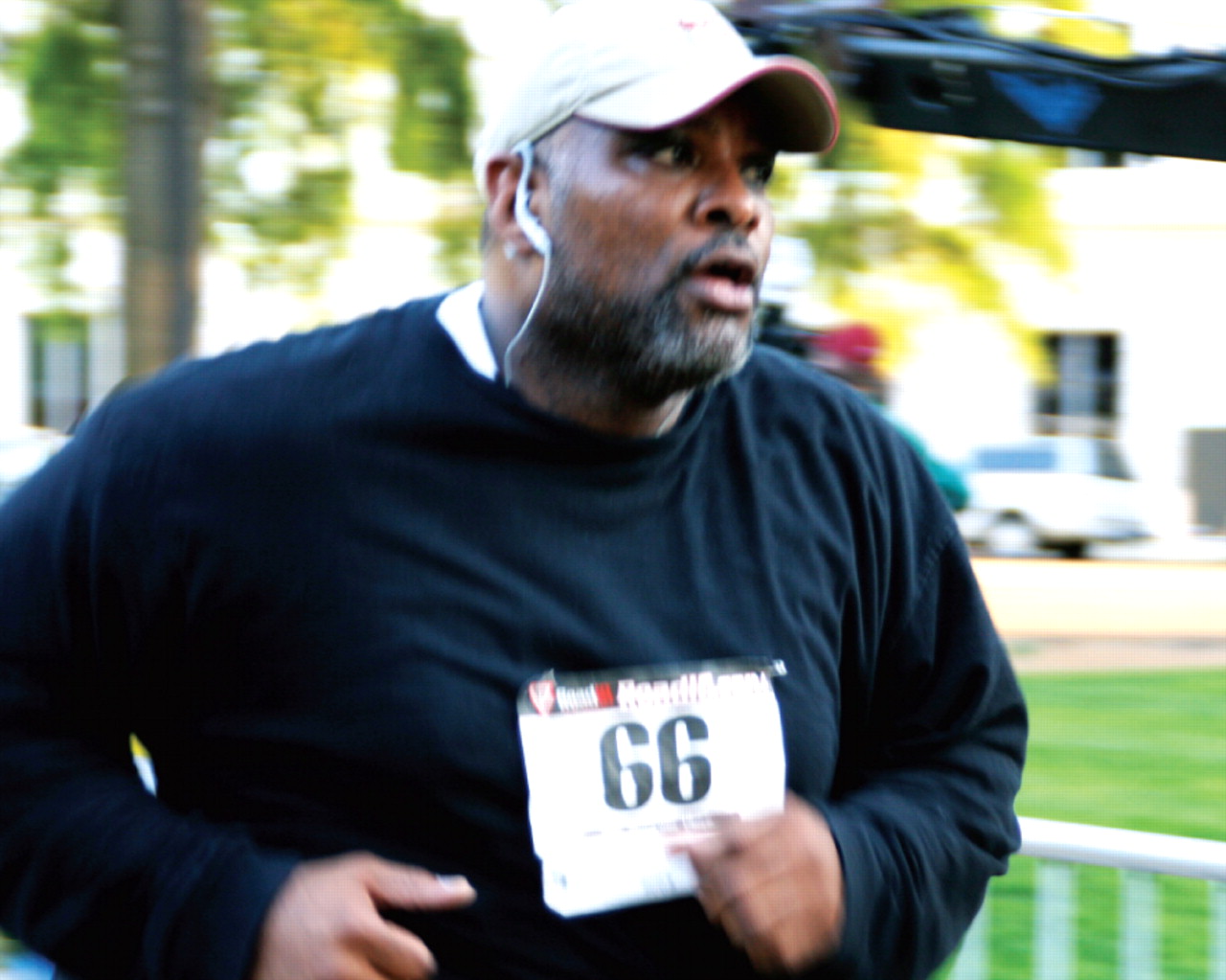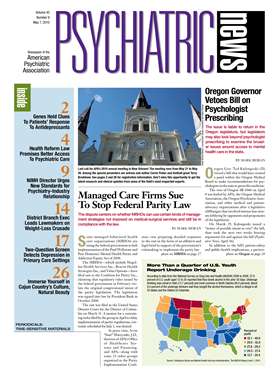Figuratively speaking, Angela Ladner is a heavyweight in the world of Mississippi psychiatry. She is executive director and lobbyist for the Mississippi Psychiatric Association. Her husband is a psychiatrist and currently president of the district branch, and her father-in-law is also a psychiatrist.
Literally speaking, Ladner was also a heavyweight four years ago. She weighed 320 pounds.
Since then she has been committed to achieving something remarkable—a physical makeover of some of Mississippi's elected officials. Moreover, the makeover has brought people of different political stripes, gender, and color together and has given mental health legislation in Mississippi a boost.
“It all started with a personal journey,” Ladner explained in a recent interview. In 2006 she served on the AMA Council on Legislation as the only nonphysician member. At one point during her tenure, she thought, “How ironic that out of all the physician spouses in the United States, I who weigh 320 pounds was asked to serve on this council. If we as physicians and physicians' spouses are going to represent the medical family, shouldn't we set a good example ourselves?” The answer, of course, was yes, and in January 2007 she started her quest to lose weight.
By February 2008 she had lost 100 pounds via a strict diet modification, but she knew that if she wanted to maintain it and lose even more weight, she would have to start exercising on a regular basis. So she joined an exercise program headed by former professional football player and personal trainer Paul Lacoste.
In fall 2009 Lacoste told Ladner that he would like to initiate an exercise program for Mississippi business or government employees. Ladner suggested that he target members of the Mississippi legislature instead—“the people who make our laws and should lead by example.” She also said that she would help him launch such a venture. Thus their Fit 4 Change exercise program was born.
Sponsors Recruited
First they recruited sponsors for the program, notably the Mississippi Psychiatric Association, St. Dominic Hospital, Millsaps College, and the Mississippi Organ Recovery Agency—all located in Jackson, the state capital. Staff at the organ recovery group were candid about why they were willing to sponsor it: “We don't need a bunch of overweight organs.”
Then Ladner recruited team captains, notably state Sen. Terry Burton, chair of the Mississippi Senate Public Health and Welfare Committee, and state Rep. Steve Holland, chair of the Mississippi House Public Health and Welfare Committee. “What better place to start than with our public health and welfare committees—the leaders who are making our health policy?” Ladner commented.
Ladner and Lacoste then called each of the other 172 members of the Mississippi legislature, as well as staff at the governor's office and some civilians, to pitch the program. During these conversations, they often mentioned that Burton and Holland would be serving as team captains for the program, and that the training, which would ordinarily cost $600 per person, would be available to them for free because the tab was being picked up by the program's sponsors. These facts, they hoped, would sweeten the offer.
Other lobbyists who heard about their efforts laughed and said, “You'll never get anybody to sign up.” But they were wrong: 130 did.
Participants Commit to Workout Schedule
Each of the 130 individuals—who ranged in age from 17 to 74—received a physical exam at Saint Dominic Hospital. All were found fit enough to take part in the program. They committed themselves to working out for one hour four times a week for 11 weeks and selected one of the time slots that would work best for them.
The program got under way in January. The workouts took place on the football field and in the gym of Millsaps College and included jogging, running, speed and agility drills, resistance training, weightlifting, and mixed martial arts.
At the start of the program and also at the end of each week, participants were weighed. The person who had lost the most weight by the end of each week received a monetary award that could be allocated to his or her school physical education program of choice. Program participants were also divided into four teams—a Senate team, a House team, a governor's-office team, and a civilian team. The team that lost the most weight at the end of each week was also recognized.
By March 5, 25 people had dropped out of the program, but 105 were still at it. As a group, they had lost 1,000 pounds. By March 31, the end of the program, their total weight loss was 1,401 pounds. “For 105 people to do that in 11 weeks, we think that's pretty good,” Ladner declared.
Indeed, “it was a life-changing experience for all of us who participated,” Burton testified. “I lost 26 pounds from the program. I've changed the way I eat. In fact, I think it could be life changing for the whole state if people follow our lead, doing away with our number-one ranking in obesity and other health-risk factors.”
Holland agreed: “I lost 23 pounds and ran for the first time in 20 years in a 5K. It felt fantastic.... I feel healthy, I'm thinking healthily; you cannot imagine how young my mind now feels.”
Benefits Go Forward
Other benefits have accrued from the program as well.
One is a commitment to spread the word of the program's benefits. “I'm in the process of developing a video and a package to send to every speaker, lieutenant governor, and governor in this nation to show them what we have done in Mississippi and to ask them to join us, to lead by example for their people as for what can happen when one commits about an hour a day to health and well-being,” Holland said.
“Because program participants were literally in the trenches working out together, and some of this was really difficult stuff, a sense of camaraderie developed among them,” Ladner reported. “It crossed party lines, it crossed male and female boundaries, it crossed black and white boundaries. People who would never have had a conversation in the capitol were now walking down the hallways high-fiving each other.”
“And the other thing that is amazing is that once the program started, the number of bills that were introduced into the legislature concerning mental health tripled,” she noted. “Also, every piece of legislation that other mental health advocates and I have worked on is alive and well and has not been modified at all. These developments are due at least in part, I think, to the relationships that I built with legislators during the Fit 4 Change program.”
Ladner's husband, Mark Ladner, M.D., concurred: “The Fit 4 Change program has given Angela the ability to form new legislative contacts and enhance existing relationships which have helped promote mental health legislation. Angela, in brief, is one of those people who can make things happen, and the Fit 4 Change program is a great example.”





